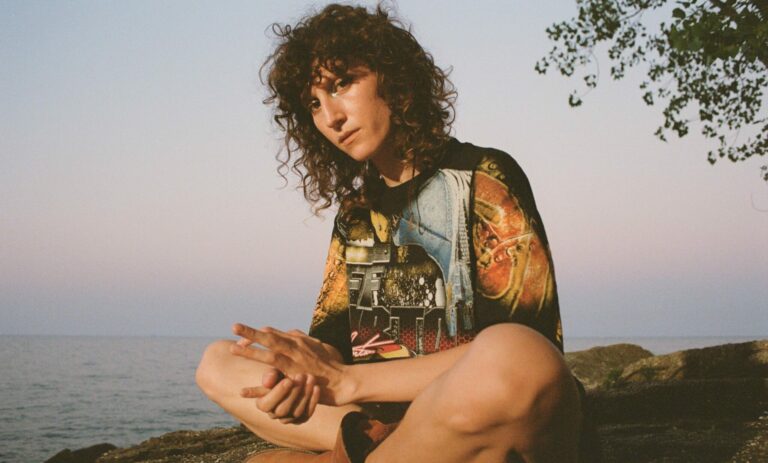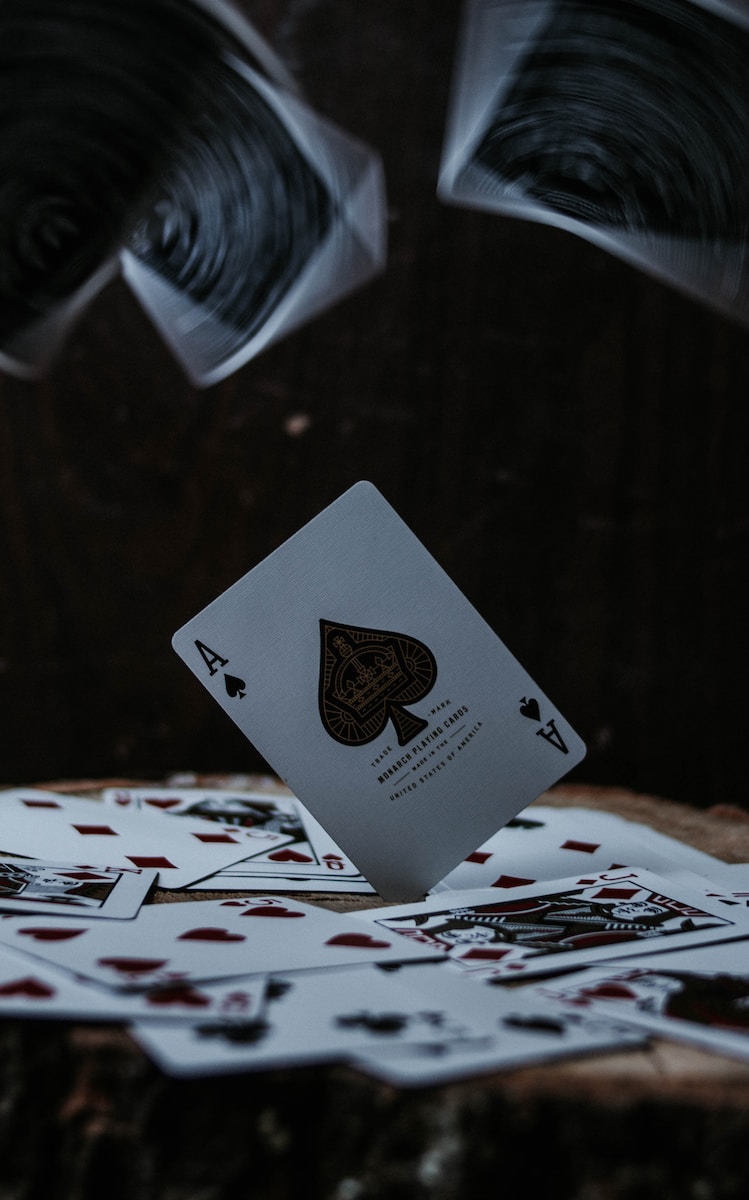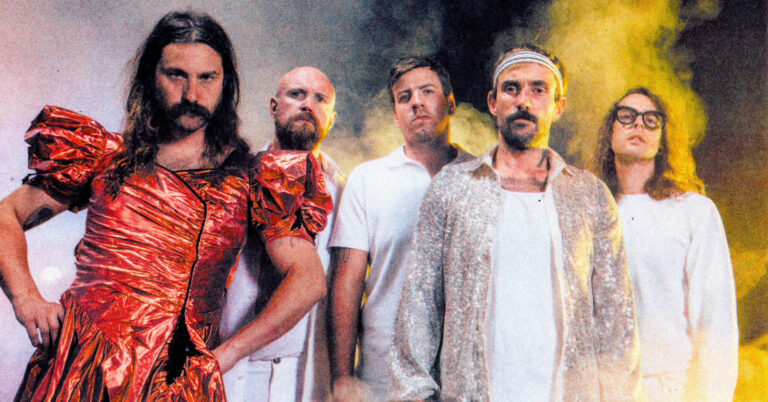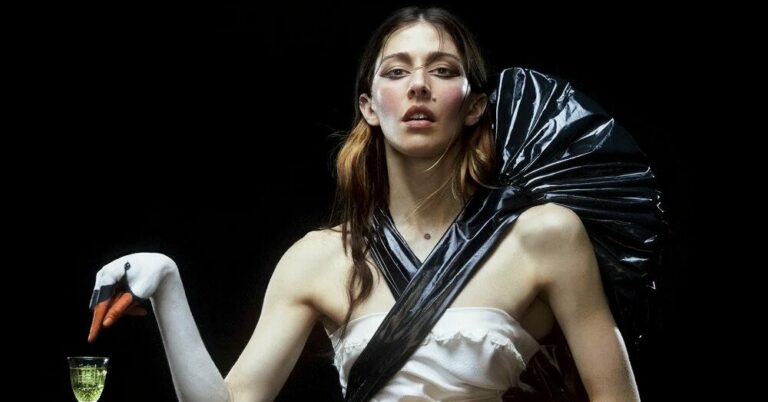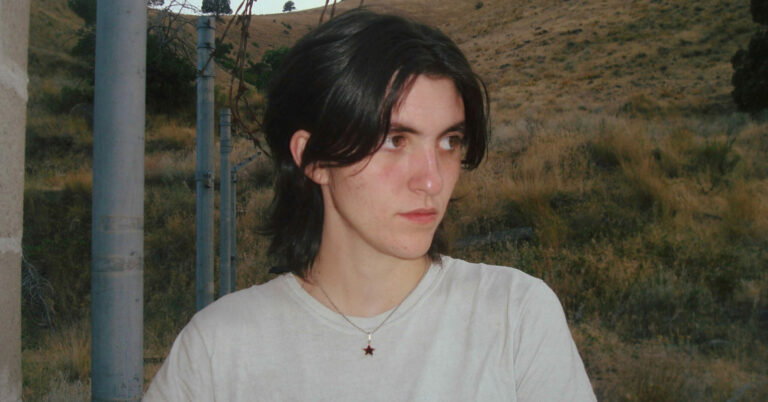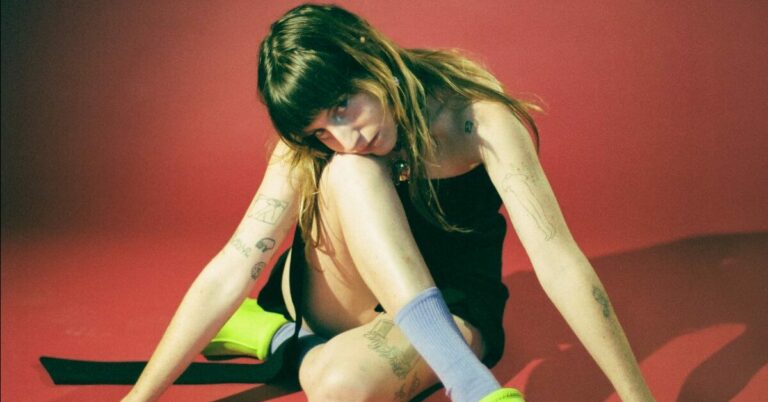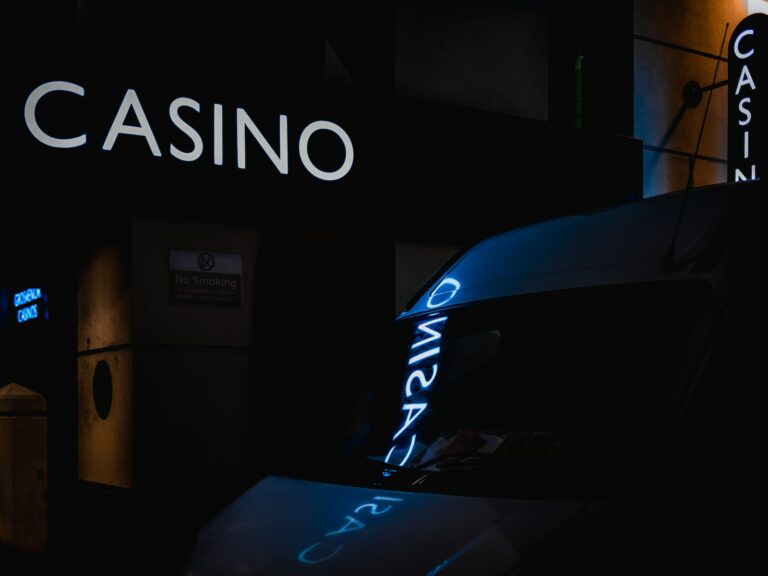The title of Squirrel Flower’s new album references a novel Ella Williams’ great-grandfather Jay wrote about a troubadour, named for a quote by the Medieval French poet Rutebeuf: “Tomorrow’s hopes provide my dinner/ Tomorrow’s fire must warm tonight.” Much of Williams’ previous LP under the moniker, 2021’s Planet (i), revolved around natural disasters and climate catastrophe, with the singer-songwriter using imaginative storytelling as a tool to channel and overcome her fear of storms, floods, and the future at large. Williams carries the same relentless intensity over to Tomorrow’s Fire, which follows January 2022’s self-produced Planet EP and was recorded at Asheville’s Drop of Sun Studios with producer Alex Farrar (Wednesday, Indigo de Souza, Snail Mail). The songs feel similarly lived-in but hit even closer to home, mounting up the exhaustion of working as a musician or any person just trying to make rent in a world seems bent on destruction. “There must be more to life/ Than being on time,” she sings on ‘When a Plant Is Dying’, “These days it takes a sunrise/ To remember you’re alive.” By turns cavernous and expansive, fiery and intimate, Tomorrow’s Fire ultimately sees life as more than endless toil, sparkling with a sense of longing and wide-eyed wonder as she considers the people who’ve come along with her for the ride. That’s the fire burning through the night.
We caught up with Squirrel Flower to talk about every song on her new album, Tomorrow’s Fire. Due to an error in recording, Williams had to relay her answers for tracks 1-7 over email. Read the track-by-track breakdown and listen to the album below.
1. i don’t use a trash can
Why did you decide to reimagine your first Squirrel Flower song, and what made it feel right as the opening track?
It’s an homage to myself, my past. I started performing it live over the past few years and really loving the live looping elements and how it felt like it connected me to my past musical self. I wanted to start the record with it to nod to the past before diving into the future.
This song also represents to me a sort of musical purity – when I wrote it I never thought anyone would really ever listen to it. It was just for the music, just for the expression, and returning to that feels really special.
The ability to capture the intimate qualities of that live performance through the guitar tone and vocal layering is also a testament to how you’ve grown as a producer since then.
Thank you! One goal with this album was to try and capture the feeling of a live Squirrel Flower show. So much of the magic of a live show can get lost when you’re in the studio, and I wanted to try really hard to retain that magic.
2. Full Time Job
Even though the song revolves around making a living as an artist, the way you write about it gives it a universal resonance. To what extent was that intentional?
It was definitely intentional. ‘Full Time Job’ is me screaming into the void about how hard it can be to live and survive as an artist, as a young person. I wanted to capture that feeling with the instrumentation. With many of the songs on this album, the songs themselves showed me what production they needed. Songs like ‘Full Time Job’ just couldn’t be any less loud. I wanted to leave restraint behind and sort of create this unrestrained, almost feral energy with the sound.
The album’s producer, Alex Farrar, is credited with “bangin on a trashcan drinkin too much coffee” on the song.
Haha yes he is! I asked him how he wanted to be credited and he said that. To be fair he did drink a lot of coffee. Like 5 cups a day.
3. Alley Light
You’ve said this song is “about a man in me, or a man who I love, or even a man who is a stranger to me.” Was there something freeing or illuminating about the ambiguity of that perspective?
Freeing definitely. Stepping into a persona that is not entirely you is one of the best parts of making and performing music.
We spoke about the song fitting into the Squirrel Flower universe in a musical sense, but lyrically, the song also reminds me of ‘Flames and Flat Tires’ – that image of escaping in a broken-down car when disaster strikes. It made me wonder how much you thought about the thematic thread between your albums.
There is always a thread because the songs all come from me, my subconscious, what I’m thinking about over the years. But in this case that is not an intentional thread between those two songs. It’s really cool to see that after the fact though – how my songs connect to each other. There are some intentional self-references – in ‘Almost Pulled Away’ there’s a line that references a song of mine from 2016 called ‘hands melt’.
I think because of the nature of my music people assume my songs are like diary entries. They’re often not. For this song I wanted to push the boundaries of narrative in my songwriting and embody someone entirely different from me, while talking about things very true to my life. I do that in past albums too, but never before as clearly.
4. Almost Pulled Away
This song has one of my favorite lines on the album: “How do people go day to day/ When everything is sparkling?” Do you remember how that came to you? How does it relate to the rest of the track?
Thank you! That line is sort of like – how can people just run around doing their little tasks and sticking to routine when there’s so much wonder and magic all around us? I get caught up in it all the time. The wonder, magic, sparkling in everything. So much that you forget about everything else. At first that lyric was different – it was “How do people go day to day/when everything is ___” (I can’t remember what word it was but it was something more negative). It didn’t feel right and I sat with it a while and this new meaning revealed itself to me.
This song is really a love song, a song about love. Whenever I’m newly in love with a person or a thing or a feeling or an idea I literally let my life fall apart just to chase that feeling and follow it anywhere.
5. Stick
In my mind, there’s a throughline between ‘Full Time Job’ and this song, where the sense of desperation turns into something bigger and almost uplifting.
Definitely. This song is about being pissed off, not wanting to compromise, being tired of being told to compromise. Tired of being let down. Just being at the end of your fuckin rope. I wanted to capture that feeling of being trapped in the cycle of arguing with someone, and then just letting it all release into an explosion in the second half of the song. The second half of the song is breaking out of the cycle of frustration and sort of expanding into something greater.
6. When a Plant Is Dying
That theme continues on ‘When a Plant Is Dying’, which was paired with ‘Full Time Job’ as a single. As the longest track on the LP, you give it the space to grow, and it’s got you, Seth Kauffman, and Jake Lenderman on guitar. What was it like to see those dynamics come alive?
It was amazing! This is actually the only song we tracked live in the studio. All of the other songs on the record were largerly recorded by Alex and me at first, layering instruments together and building it up, and then bringing the other players in to add things on top.
I knew from the beginning that this song needed to be performed live. All of us just set up in one room together, played through the song a couple times, then recorded it. The energy in the room was unbelievable. I was buzzing.
7. Intheskatepark
This song dates back to the summer of 2019. What made you go back to it, and how did it find its place on this record?
A lot of my friends had heard the weird little demo I’d made on a toy synth back in 2019 and really loved it. I thought it would never fit as a “Squirrel Flower” song, I thought it was too silly, too different, but then I realized…. fuck it! I wanted to be expansive and not hold myself within any confines of genre or expectations. So that’s how I decided to take this song and put it on the record.
Does the song remind you of how things have changed, or do you still feel in touch with that particular feeling of summer?
This song is crush music, summer music, biking and drinking blasting music with all your friends, feeling carefree music. Every summer living in Chicago feels like that to me, so in that sense I definitely still feel in touch with it. Anyone in Chicago will tell you, the winters are hell, the summers are paradise.
8. Canyon
The song relays the story of your mother sneaking out to go to a Springsteen concert with her boyfriend when she was 15, but you also weave that in with your own personal experience. How did that story fit into what you were going for with the track?
It was kind of random, to be honest. I don’t really think that line relates too much to the rest of the song, or at least in a very clear way. I was writing the song and that memory popped into my mind. When my mom told me that story, I just loved it so much. It made me feel closer to her – we’re very close, but it made me feel even closer. I saw some of myself in that, and I wanted to include that in the song.
I wanted the song to sound like rocks were falling from cliffs and breaking. When I made the demo, I was really inspired by Ry Cooder’s playing on the Paris, Texas soundtrack. That slide guitar was my jumping-off point for the song. It kind of flip flops between different musings and thoughts on being on the road and thoughts on my mom and thoughts on technology outlasting nature. Honestly, my favorite line on the whole album is, “Steal your cell phone/ Throw it into the canyon/ I know/ When a thousand years go by/ Shifting rocks/ Different sky/ Will it be there/ Still on track?/ GPS tryin to get back?” I just had this vision of like two thousand years from now, humanity doesn’t exist, the rocks are changing, and there’s still a phone at the bottom of the canyon being like, “In one thousand feet, go left.” I just loved that image. It’s shit I think about a lot, the role of technology and will it really outlast the natural world?
There’s also some metal-working sounds in that song. My little sibling Nate was a steel worker for a year and a half in Chicago, and I bought them a little Zoom recorder for Christmas – it was a very selfish gift, because I was like, “Here’s the Zoom recorder, you’re gonna record your welding and your grinding metal, and you’re gonna send me the tracks.” [laughs] And they did it, and it fits in perfectly with the guitar. It’s such an incredible moment. I really love how this song ended up.
I saw that in the credits, but I was curious how intentional it was or if it was part of the original idea for the song.
I can’t remember if I had the original idea or if I did, but we were just talking about it and decided that it would be really cool to do that. They sent me a bunch of different types of sound recordings, and then me and Alex picked the grinding which felt like it could most fit in with the rest of the song. So it was definitely planned, not spontaneous, but definitely something that I hadn’t done in a while. I would use field recordings in my very early Squirrel Flower music and experiment more with that, and I wanted to get back to that, not just using instruments to make sound and make my songs, but also capture the sounds of the environment around me.
9. What Kind of Dream Is This?
“The night’s so dark it’s almost light again” – to me, that encapsulates the whole mood of the song, where the sense of exhaustion or exasperation that’s been building throughout the album turns into something otherworldly and dreamlike. There’s almost a strange pleasure in that, where you can’t tell if it’s light or dark, heaven or hell.
That’s really cool to hear you say that. You know, I make the songs, I make the art, I don’t analyze my songs. I try not to, and even if I do, I don’t think I do a very good job at it. Sometimes hearing other people’s interpretations of it, I’m like, “Oh yeah, that is exactly what I was going for.” I just didn’t have the words to voice that to myself. But that’s very spot-on, very much what the song is.
It was actually the first song I wrote intentionally for the album. I was at this artist’s residency – it’s basically just this cabin in the Southern Sierras in California, it was at the top of this huge mountain. We literally had to drive eight miles up this mountain, and the cabin was at the top. This song came after a period of, I was on tour for a long time, and when I got back, I felt unbelievable burnout that I had never felt in music before then. I couldn’t really find it in me to make a song – I couldn’t find a creative spark, I couldn’t find the energy within myself to get off of such a grueling period of touring and be like, “Alright, time to make the next record, let’s keep churning it out.” I thought about taking a step back from music, as I think a lot of artists do, but then I went to this residency and went through the process of uncovering and excavating that is the creative process. For me, it’s really a process of excavation, and you have to show up and uncover the layers to release and find the best songs that are underneath. It can be a very painful process, and there’s a lot of discipline involved and a lot of mystery involved.
This song was the first song that came out of that process for me. When I wrote it and recorded it at this residency, it felt like something had opened, and everything else came out after. It just felt very magical. I made the demo, I spent all day making it and chain-smoking on the porch of this cabin in the mountains. I don’t even smoke, but I was like, “Let’s fucking go.” [laughs] I spent all day layering voice take over voice take over voice take. I wanted to capture the feeling of the mountain and the canyons and celestial energy. I had this dream of this incredible scene – there were many moons and stars in the sky, it was this period of dusk or dawn and there were these huge amazing blimps flying by, and I just had this feeling of magic and hope and weightlessness that also inspired the song.
10. Finally Rain
In a weird way, this is what made ‘Intheskatepark’ make sense for me in the context of the album, because I think it’s the only other song where you use the pronoun “we.” When it goes from “I won’t grow up” to “We won’t grow up” on ‘Finally Rain’, it feels like you’re referring to the same kind of family, and it’s like the live, collaborative energy of the record really comes out at the end.
Yes, 100%. Yeah. The last phrase of that song, when it goes to the we, when I wrote it, I had the intention of invoking that sense of community in the song that’s listing all of these very tragic and challenging things happening. Feeling a sense of nihilism almost, “I won’t grow up,” like the earth has an expiration date – it’s incomprehensible. I don’t know if I have a future because of climate change, there’s no way to really know what will happen. And then to realize, “We won’t grow up,” not being a nihilistic thing, but more of: we will continue to make music and make art and explore and play and have a childlike wonder about the world. And that’s how we will get through, is by not growing up in a traditional sense. When I wrote it, I was thinking about my loved ones and my community and the people that are close to me.
It sort of all came out in one go. I wrote it on my grandfather’s guitar in my childhood bedroom, and it was kind of coming out of this period – a few different things happened to inspire the song. I’d say it’s one of my more literal songs on the record. I was visiting my parents, and there was this severe drought, and my mom – she’s a teacher during the year, and she works on a farm in the summer and grows a lot of her own food, but everything in her garden was dead and she refuses to water the garden during a drought. And then there was this massive chemical spill next to the town where my partner at the time grew up and where his parents lived. Those two things happening at the same time just struck me so deeply. It’s like, how can we be expected to grow up, get a regular job, lighten up, take it easy, when this is the world that we live in, when this is our reality, this is our future? So it’s a statement of, I won’t grow up – I won’t accept what has been given to me, I won’t accept the status quo. I believe that there’s a way to live that’s different from how we’re told we should live, just navigating all of these things in community, with hope, with wonder, with the sense that, even though the future is ambiguous, there is this hope and this flame. And this is where the title comes in, Tomorrow’s Fire – it’s a reference to something, but it’s also what gets me through my days – just knowing that there is this way to live in community. There is a way forward.
I’m reminded of something you said last time we talked, which was that a lot of your songs have statements that may not be true, but you’re saying them as affirmations. Here, you’re turning a phrase that’s negatively charged – we won’t grow up because the climate is doomed – to something collectively affirming. At this point, how much does the meaning of it waver for you? Do you still mostly lean on the side you just laid out?
[pauses] I still feel that way, and I hope to continue to feel that way. And I think that this song reminds me to continue to feel that way when I get into more nihilistic mindsets. That’s the beauty of it, I think, for me – similar to ‘Desert Wildflowers’ in my last album, it serves as a reminder to myself as I grow older, as I tour more, as I do all of these things, to stay in that mindset. And when I’m singing that every night, I think it will remind me to stay there.
Squirrel Flower’s Tomorrow’s Fire is out now via Full Time Hobby.
